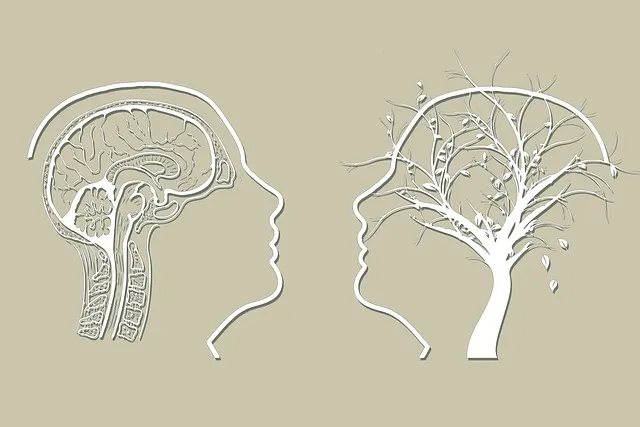Cultural competency in healthcare, particularly in diverse areas like Lakewood, is essential for providing quality mental wellness services. Programs such as coaching and journaling exercises can improve care tailored to patients' cultural identities. Training equips providers with skills to navigate various backgrounds, enhancing communication, adherence to treatment plans, and preventing burnout. Both Lakewood and Kaiser successfully implement inclusive strategies: Lakewood offers trained staff and resources, while Kaiser integrates holistic wellness workshops. To ensure equal access to mental health services in Lakewood, culturally sensitive training for healthcare providers is crucial, breaking down barriers and fostering an inclusive environment through tailored support from resources like Kaiser.
“In today’s diverse healthcare landscape, cultural competency is no longer an option but a necessity. This article explores the transformative power of cultural competency training for healthcare providers and its profound impact on patient care. We delve into the reasons behind its significance, analyzing case studies from Lakewood and Kaiser to present best practices. Furthermore, we emphasize the critical role of accessible mental health resources in breaking down barriers, ensuring all communities can access the care they need, just like Lakewood and Kaiser have successfully demonstrated.”
- Understanding Cultural Competency in Healthcare: Why It Matters
- The Impact of Cultural Sensitivity on Patient Care and Outcomes
- Best Practices for Implementing Training Programs: A Case Study of Lakewood and Kaiser
- Accessible Mental Health Resources: Breaking Down Barriers for All Communities
Understanding Cultural Competency in Healthcare: Why It Matters

Cultural competency in healthcare is an essential aspect that bridges the gap between diverse patient populations and quality medical services. It involves understanding and respecting different cultural beliefs, values, and practices to ensure every individual receives care tailored to their unique needs. This is particularly crucial in areas like Lakewood, where communities are becoming increasingly diverse, with residents seeking assistance from providers like Kaiser for both physical and mental health issues.
In the realm of mental wellness, for instance, a culturally competent approach can significantly impact how patients engage with services. Mental Wellness Coaching Programs Development offers guidance on adapting care to diverse cultural contexts, while Mental Wellness Journaling Exercise provides a tool for professionals to explore and address their own cultural biases. Boosting confidence through tailored support is also vital, ensuring patients feel comfortable discussing sensitive topics related to their cultural backgrounds.
The Impact of Cultural Sensitivity on Patient Care and Outcomes

In today’s diverse healthcare landscape, cultural sensitivity is no longer a nice-to-have but an absolute necessity. Healthcare provider cultural competency training equips professionals with the skills to navigate complex patient interactions, ensuring every individual receives respectful and effective care. This is particularly crucial in areas like Lakewood or when working with organizations such as Kaiser, where patients come from various ethnic, cultural, and socioeconomic backgrounds.
By fostering a culture of sensitivity, healthcare providers can significantly improve patient outcomes. Research shows that culturally competent care enhances communication, leads to better adherence to treatment plans, and reduces instances of burnout among providers, especially in high-pressure settings like mental health services. Moreover, it encourages the adoption of coping skills development and self-care practices, which are essential for maintaining well-being and preventing professional exhaustion.
Best Practices for Implementing Training Programs: A Case Study of Lakewood and Kaiser

Lakewood and Kaiser serve as excellent case studies for implementing effective cultural competency training programs within healthcare settings. Both organizations recognize the importance of addressing mental health concerns among diverse patient populations, a crucial aspect of modern healthcare. Lakewood focuses on creating an inclusive environment by offering resources tailored to various cultural backgrounds, ensuring patients feel comfortable seeking mental health help. This involves providing interpreters, culturally sensitive literature, and staff members trained in cross-cultural communication.
In contrast, Kaiser takes a holistic approach, integrating mental wellness initiatives into its routine care. They organize workshops and seminars on topics like stress management, mindfulness, and self-care practices, encouraging open discussions around mental health. By doing so, Kaiser fosters an environment where patients are empowered to take charge of their mental health awareness and seek support when needed, mirroring Lakewood’s commitment to accessible self-care practices.
Accessible Mental Health Resources: Breaking Down Barriers for All Communities

In many communities, accessing mental health resources can be a significant challenge, especially for those facing cultural or socioeconomic barriers. Lakewood residents, for instance, often turn to Kaiser for their healthcare needs, but finding suitable mental health support within this system might require additional navigation. Breaking down these barriers is crucial to ensuring that all individuals, regardless of their background, have equal access to essential services like Crisis Intervention Guidance, Depression Prevention programs, and guidance on Emotional Regulation techniques.
By providing culturally sensitive training for healthcare providers, we can enhance the availability and effectiveness of mental health care. This includes teaching professionals about the unique needs and perspectives within different communities, allowing them to offer tailored support. With the right resources, Lakewood residents and others like them can receive the help they need, fostering a more inclusive and supportive environment for mental well-being.
Healthcare provider cultural competency training is no longer a nice-to-have, but an essential tool in improving patient care and outcomes. As we’ve seen from both the case study of Lakewood and Kaiser’s approaches, successful implementation requires comprehensive programs that educate, engage, and empower providers to navigate diverse patient populations effectively. By prioritizing mental health resources and breaking down barriers, healthcare systems like Lakewood and Kaiser are setting a standard for accessible and culturally sensitive care, ultimately fostering healthier communities. To ensure equitable treatment, it’s crucial that all providers receive adequate cultural competency training, reflecting the diverse backgrounds of both patients and their caregivers.






